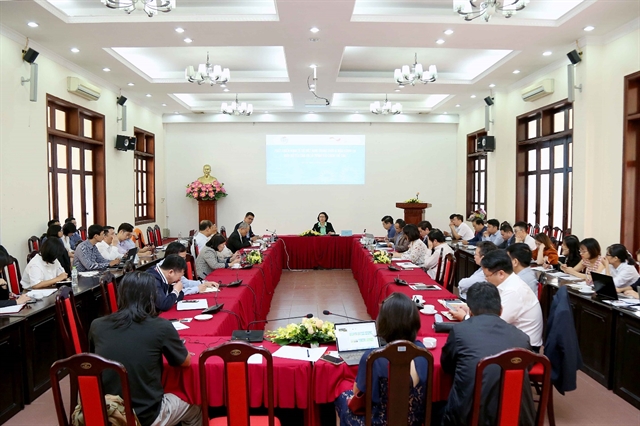The world was witnessing rapid changes from the fourth industrial revolution with breakthroughs in many fields, including the digital wave of the manufacturing sector.

Viet Nam was constantly looking for new driving forces for growth and the country had leveraged opportunities from digital and e-commerce for economic growth, according to CIEM director Nguyen Thi Hong Minh.
The Central Institute for Economic Management (CIEM) held a seminar titled 'Viet Nam's digital economic development post-COVID-19: Some requirements and roadmaps for institutional reform' in Ha Noi on Wednesday.
The world was witnessing rapid changes from the fourth industrial revolution with breakthroughs in many fields, including the digital wave of the manufacturing sector, said Minh.
Recognising its importance, many countries had concretised their digital economic development priorities, she added.
The COVID-19 pandemic had made the Vietnamese Government and the business community more interested in the digital economy, noted the director.
At the event, the CIEM’s Department General Economic Issues and Integration Studies released a report aimed at assessing policy priorities, implementation and the realities of digital economic development in Viet Nam.
At the same time, the report identified conditions and requirements for institutional reform for the inclusive development of the digital economy and proposed a roadmap for digital economic development in Viet Nam.
The CIEM director proposed solutions for the development of the digital economy, including ensuring a safe network security environment, completing competition policies, amending tax laws to regulate digital-based activities, enhancing the effectiveness of intellectual property protection, and regulating regulations related to the labour market and social security in the digital context and infrastructure.
Tran Minh Tuan, deputy director of the National Institute of Information and Communications Strategy, said there should be open data policies, allowing public access to encourage analysis, creation and development of applications from open data.
In addition, the technology applied in smart city development needed to conform to international standards and be compatible with other countries to be able to transfer data between economies in the context of global integration, added Tuan.
During the transition to a digital economy, labour relations would be repositioned as partnerships, employer-employee relations.
With Viet Nam's participation in new-generation free trade agreements such as the CPTPP and EVFTA, there must be changes in these regulations to create favourable conditions for both users as well as labourers.
“In addition to the normal regimes, participating in the labour market will ensure workers’ technology skills improved, contributing to the success of building a digital economy in Viet Nam," said a representative of the CIEM’s Department General Economic Issues and Integration Studies. — VNS





